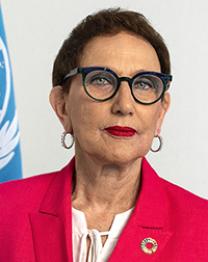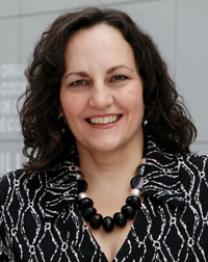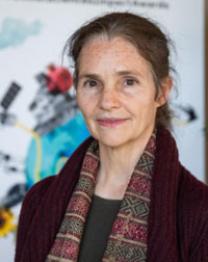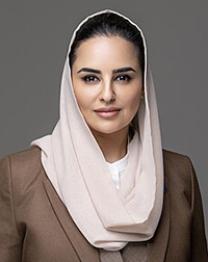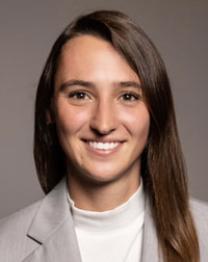
As the world undergoes significant changes and is challenged by environmental vulnerabilities, social inequalities, debt and fragilities, there is a need to reconsider what is perceived as progress and how progress is measured. While gross domestic product (GDP) measures the production of goods and provision of services, development is about people, well-being and the planet. Target 19 under Sustainable Development Goal 17 and the Pact for the Future both call for metrics that go beyond GDP, to bridge the information gap and make the “invisible” visible in policy decisions.
Participants at this event will be invited to engage with the United Nations Secretary-General’s high-level expert group on the Beyond GDP project, supported jointly by UNCTAD, the Department of Economic and Social Affairs, the United Nations Development Programme and the Executive Office of the Secretary-General. The event will explore how measuring progress differently can guide smarter policy, investment and economic transformation for current and future generations. Participants are specifically called on to lead the discussion and share national experiences in advancing the use of new metrics.
Programme
Moderator: Nathalie Delorme, Associate Political Affairs Officer, Beyond Lab, Office of the Director-General, UN Geneva
Panel 1: Towards a new global solidarity for people and the planet
Participants in the discussion will address how to build a new global development narrative, grounded in solidarity and ecological stewardship, to progress beyond GDP and advance well-being, equality and sustainability.
Questions
- How can we change course to look beyond GDP and focus on people and the planet to advance well-being, equality and sustainability?
- How can member States and the multilateral system jointly advance a renewed development paradigm and new metrics?
Speakers
- Rebeca Grynspan, Secretary-General, UN Trade and Development (UNCTAD)
- Namgyal Dorji, Minister for Industry, Commerce and Employment, The Kingdom of Bhutan
- Deemah AlYahya, Secretary-General, Digital Cooperation Organization
- Nora Lustig, Samuel Z. Stone Professor of Latin American Economics & Co-chair of the UN High-Level Expert Group on Beyond GDP
- Mary Beth Goodman, Deputy Secretary General, OECD
Panel 2: Driving transformation for more equitable, inclusive and sustainable development
The discussion will address driving economic transformation for equitable, inclusive and sustainable development, under the theme of the sixteenth session of the Conference. Consideration will be given to the kind of economic transformation needed to address, at the national and international levels, persistent inequalities and environmental crises.
Questions
- What are the key challenges in current economic systems and efforts towards transformation as a broader vision of progress is pursued?
- How can policymakers ensure that new metrics reflect the needs and realities of developing countries and the least developed countries? What challenges and opportunities should be considered?
- How can metrics that go beyond GDP be integrated into national planning and budgeting, for a real shift in development?
Speakers
- Matthew Anthony Wilson, Ambassador, Barbados
- Peggy Hicks, Director, Thematic Engagement Division, Office of the UN High Commissioner for Human Rights (OHCHR)
- Sabina Alkire, Director, Oxford Poverty & Human Development Initiative (OPHI), University of Oxford
- Rutger Hoekstra, Associate Professor, Institute for Environmental Sciences, Leiden University
- Max Amanu, Development Economist, Youth Network on Beyond GDP representative
In September 2021, Rebeca Grynspan was appointed Secretary-General of the United Nations Conference on Trade and Development (UNCTAD), becoming the first woman to lead the organization in its 60-year history.
Rebeca Grynspan, an economist and former Vice President of Costa Rica, is an experienced leader of international institutions with a substantive track record in government, UN diplomacy, economic policy and multilateral cooperation at the global level.
Prior to joining the United Nations, she was Vice President of Costa Rica and held cabinet positions as Minister of Housing, Minister Coordinator of Economic and Social Affairs and Deputy Finance Minister.
Previously, she served as Secretary-General of the Ibero-American Conference (2014–2021), chairing regional summits of Heads of State and Government; United Nations Under-Secretary-General and Associate Administrator of the United Nations Development Programme (UNDP); and UNDP Regional Director for Latin America and the Caribbean. She was a member of the UN Commission for the Reconstruction of Haiti, representing the UN Secretary-General.
At UNCTAD, Grynspan has been at the centre of critical negotiations to address global trade and development challenges. She played a decisive role in the successful Black Sea Grain Initiative brokered between the UN, Türkiye, the Russian Federation and Ukraine, which enabled the safe export of over 32 million tons of grain, lowered global food prices by 22% and prevented millions from falling into food insecurity. She also leads the UN Global Crisis Response Group on food, energy and finance, and has represented the UN in G20 summits.
Her leadership has been recognized widely. In 2024, she received the Doha Negotiator of the Year Award for spearheading UN efforts to restore Black Sea trade routes. In 2025, Spain’s Ministry of Foreign Affairs, European Union and Cooperation awarded her the inaugural Isabel Oyarzábal Women in Multilateralism International Prize for her contribution to multilateralism.
Ms. Grynspan holds degrees in economics from the University of Costa Rica and the University of Sussex, and honorary doctorates from several European universities.
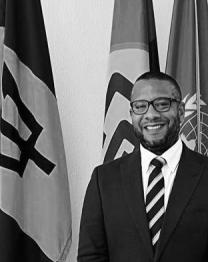
Matthew Wilson is the Ambassador and Permanent Representative of Barbados to the United Nations (UN), World Trade Organization (WTO), and other international organizations in Geneva. Ambassador Wilson has more than 25 years of experience in trade and development.
He is the Chair of the WTO Working Group on Micro-, Small-, and Medium-Sized Enterprises (MSMEs), Co-Convenor of the WTO Plastics Pollution Dialogue, Coordinator of the Geneva SIDS Ecosystem and coordinator of the ACP in Geneva. Prior to this he was Chief of Special Projects and Chief of Staff at the International Trade Centre (2013–20), Senior Adviser to the WTO Director General (2011–13), and Deputy Aid for Trade Coordinator at WTO.
He has degrees in Psychology and Sociology; International relations; Development Studies; and an MBA-Essentials. He is on the Boards of the International Gender Champions; UNCTAD’s ASYCUDA; and the Forum on Trade, Environment & the SDGs (TESS).
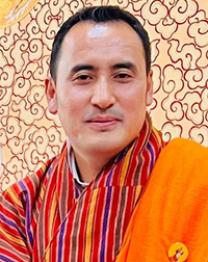
Lyonpo Namgyal Dorji serves as the Minister for Industry, Commerce and Employment (MoICE) in the Royal Government of Bhutan, following his appointment by His Majesty The King on 28 January 2024. He is also a Member of Parliament in the National Assembly of Bhutan, representing the Kabji-Talo constituency in Punakha.
He holds a Master’s degree in International Relations and Diplomacy from the Coral Bell School of Asia Pacific Affairs at the Australian National University, a Postgraduate Diploma in Public Administration from the Royal Institute of Management, and a Bachelor of Arts (Honours) in English from the University of Delhi.
Before entering politics in 2022, he served for over 12 years in the Ministry of Foreign Affairs, where he held various diplomatic and policy roles including 4 years of service at the Permanent Mission of Bhutan to the United Nations in New York.
Outside of his official responsibilities, he enjoys reading, long hikes, and spending quality time with his family and three children.
Mary Beth Goodman took up duties as Deputy Secretary-General on 4 April 2024, bringing her extensive expertise and leadership experience in economic development, trade, anti-corruption, and democratic governance around the world.
As Deputy Secretary-General, Ms Goodman is responsible for the environment, public governance, and development portfolios of the OECD. This includes responsibility for sustainable development, climate finance and anti-corruption as well as the Blue Dot Network.
From 2021 to 2023, she was the United States Coordinator for Global COVID Response and Health Security, having previously served as Special Assistant to President Barack Obama and Senior Director for Development and Democracy at the US National Security Council.
Ms Goodman has also been a leader in civil society, co-founding an organisation to investigate links between corruption, kleptocracy, and human rights abuses in Africa. Prior, she had a distinguished career in the Foreign Service, serving in diplomatic roles in Pakistan, Mali, and Washington, D.C.
Before her diplomatic career, she practiced international trade law, participating in free trade agreement negotiations and advising on trade compliance matters.
Sabina Alkire has a DPhil in Economics, and directs the Oxford Poverty and Human Development Initiative (OPHI) in the University of Oxford, where she is Professor of Poverty and Human Development. OPHI advances the measurement and policy use of multidimensional poverty (and well-being) indices (MPIs) – such as the global MPI released jointly with UNDP, and also accompanies national official poverty statistics tailored multidimensional indices to country contexts.
Alkire’s research focuses on Sen’s capability approach; well-being and poverty measurement and analysis; child, gendered and intrahousehold analyses of multidimensional poverty indices; and poverty data.
Deemah bint Yahya AlYahya is a Saudi tech diplomat and digital economy expert. In 2021, she was elected as the first Secretary-General of the Digital Cooperation Organization, an inter-governmental organization established in 2020 to work towards a world in which every country, business and person has a fair opportunity to prosper in the global digital economy. She works directly with heads of state, government ministers and digital economy leaders to promote the inclusive development of the digital economy, focusing on global initiatives with real-world impact.
Secretary-General AlYahya has spent nearly 20 years building tech communities in the United States and across the Middle East, acting as a catalyst for innovation and improving the environment for digital entrepreneurs and developers. More than 2.5 million people have benefitted from the ecosystems she has built to distribute the digital economy’s advantages more widely.
A trailblazer for Saudi women in tech, Secretary-General AlYahya began her career as a developer but quickly demonstrated her ability to build public sector centers of innovation from the ground up, among them Saudi Arabia’s National Digital Transformation Unit and the Innovation wing of the MiSK Foundation.
She has served as Chief Innovation Evangelist at Microsoft, responsible for expanding the developer ecosystem and in empowering youth, women and independent software vendors by providing the technology, skills and tools they needed to evolve from job seekers to job creators.
She holds a BA in Computer Science and Information Systems from King Saud University, and has attended senior executive programs with Harvard Business School, and the INSEAD business school.
Max Amanu is a Development Economist, Youth Empowerment Strategist and Education Activist, dedicated to empowering young people to become active agents of positive change through advancing access to quality education and championing youth participation in public life.
He is currently the Regional Director for Africa at changing-lives Switzerland, Thematic Lead for Education and Employability at the Queen Elizabeth II Commonwealth Trust (QECT) and a Co-Founder of Northwind Foundation, a nonprofit organization that empowers youth from low-income backgrounds through access to free education and employability skills training.
Nathalie Delorme serves as Associate Political Affairs Officer at the Beyond Lab, where she advances key policy initiatives, strategic planning, and multistakeholder partnerships for sustainable development. She leads the Youth Moving Beyond GDP initiative, fostering intergenerational equity to redesign economic systems for long-term sustainability, as well as the Spillover Innovation Learning Journey, which operationalizes global solidarity through knowledge exchange and peer learning.
Nathalie joined the United Nations in 2019 and has held various positions at the SDG Strategy Hub in the UN Office for Partnerships, at UN Women Headquarters and in Morocco, and at the International Fund for Agricultural Development (IFAD), focusing on multistakeholder collaboration and sustainable development policy.
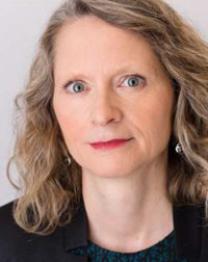
Since January 2016, Peggy Hicks has served as director of the Thematic Engagement, Special Procedures and Right to Development Division at the UN's human rights office. From 2005 to 2015, she was global advocacy director at Human Rights Watch, where she was responsible for coordinating Human Rights Watch's advocacy team and providing direction to its advocacy worldwide.
Ms. Hicks previously served as director of the Office of Returns and Communities in the UN mission in Kosovo and as Deputy High Representative for Human Rights in Bosnia and Herzegovina. She has also worked as the Director of Programs for the International Human Rights Law Group (now Global Rights), clinical professor of human rights and refugee law at the University of Minnesota Law School, and as an expert consultant for the UN High Commissioner for Human Rights. Ms. Hicks is a graduate of Columbia Law School and the University of Michigan.

Rutger Hoekstra is an associate professor at the Institute of Environmental Sciences of Leiden University. He is an expert on measuring Beyond-GDP metrics for Wellbeing, Inclusion and Sustainability (WISE). He is also the author of Replacing GDP by 2030 which was published by Cambridge University Press in 2019.
Rutger was the co-chair of the UN-ECE/OECD/Eurostat task force that produced the Conference of European Statisticians Recommendations on Measuring Sustainable Development. He currently leads the WISE Horizons project which is a 4-year European project to develop metrics, accounting and models for sustainable and inclusive wellbeing. Furthermore, he is also involved in the MERGE project and many other international initiatives such as the UN Expert Group on Wellbeing Measurement (EGWM).
He has worked with/for the United Nations, World Bank, European Commission, OECD, European Central Bank, KPMG, Statistics Netherlands and many other organizations.
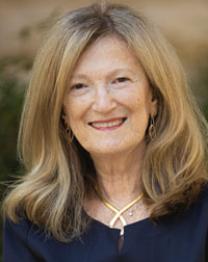
Nora Lustig is Professor Emerita of Economics and the founding Director of the Commitment to Equity Institute (CEQ) at Tulane University, and Visiting Professor at El Colegio de México. She is also a nonresident scholar at the Brookings Institution, the Center for Global Development, the Georgetown University Americas Institute, the Paris School of Economics, and the Stone Center on Socioeconomic Inequality.
Her research focuses on economic development, inequality, and social policies, with particular emphasis on Latin America. She has published more than ninety articles and fifteen edited volumes and books. Her most recent publication, Commitment to Equity Handbook: Estimating the Impact of Fiscal Policy on Inequality and Poverty, provides a step-by-step guide to assessing how taxation and social spending affect inequality and poverty in developing countries.
Professor Lustig co-chairs the UN High-level Expert Group on Beyond GDP. She is a former President of the Society for the Study of Economic Inequality (ECINEQ) and President Emeritus of the Latin American and Caribbean Economic Association (LACEA). She also serves on the editorial board of the Journal of Economic Inequality.
She received her Ph.D. in Economics from the University of California, Berkeley, and in 2021 was honored with the Tulane University Innovation Award.



